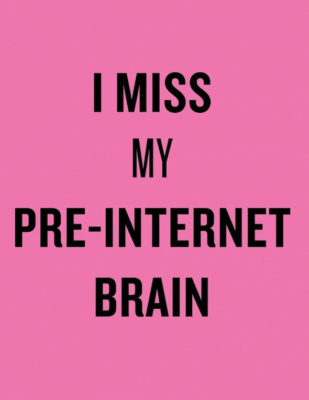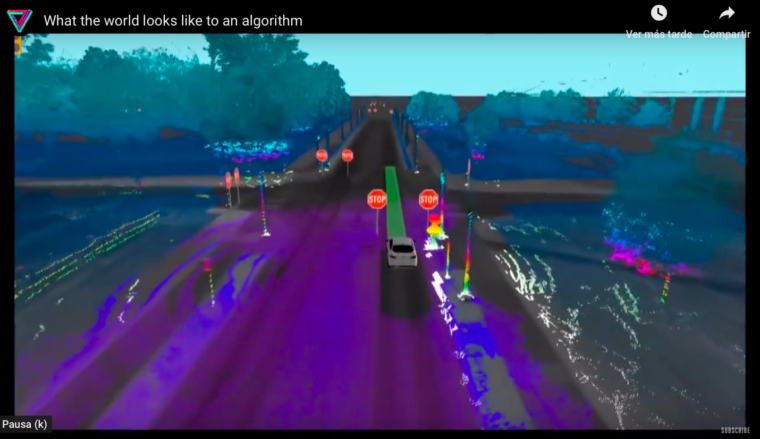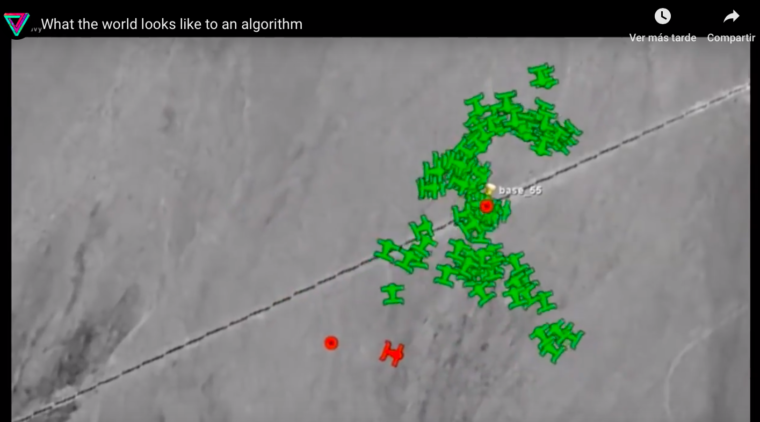Search
To search for an exact match, type the word or phrase you want in quotation marks.
A*DESK has been offering since 2002 contents about criticism and contemporary art. A*DESK has become consolidated thanks to all those who have believed in the project, all those who have followed us, debating, participating and collaborating. Many people have collaborated with A*DESK, and continue to do so. Their efforts, knowledge and belief in the project are what make it grow internationally. At A*DESK we have also generated work for over one hundred professionals in culture, from small collaborations with reviews and classes, to more prolonged and intense collaborations.
At A*DESK we believe in the need for free and universal access to culture and knowledge. We want to carry on being independent, remaining open to more ideas and opinions. If you believe in A*DESK, we need your backing to be able to continue. You can now participate in the project by supporting it. You can choose how much you want to contribute to the project.
You can decide how much you want to bring to the project.

“We cannot afford to ignore the limitless manifestations of what is arguably the singular cultural and intellectual achievement of our era: the web-based decisioning power of Algorithm”. Michael Pepi, Iconology in the age of algorithm (2011).
My proposal as guest editor during the month of April 2019 in A*Desk has been dedicated to reflecting about our networked world, the use of technology & information in our society, the power of algorithms taking decission for us, and its impact in contemporary culture.
Although connectivity, access to information and the ability to disclose it has been in some cases and areas of the planet favourable, in general, this irruption is far from positive, especially if it is related to the use of personal information by third parties, data planetary surveillance, certain societal deficiencies —organizational, emotional, and affective, and the loss of subjectivity.
In these digital dark ages, society is accelerating at a parallel rhythm to that of the bits, there is a transition from the sequential to the simultaneous, the value of the here and now: the immediacy. The masses and crowds engage in automatic chains of behaviour, our subjectivities are propagated in real time through social networks and power can move with the speed of the electronic signal, thus the time required to exercise it has been reduced to instantaneity.
If you are not paying for the service then … You are the product! Technological companies are Orwellian machines capable of censoring and delimiting reality to make us live with a fishbowl effect within their system. However, unlike in 1984, this is a different type of control, a kind of voluntary assignment of privacy in exchange for receiving exhaustive (in theory) information. We still do not perceive the risk of the algorithm going beyond the digital boundary and becoming part of our personality.
As Cathy O’Neil put it in her book Weapons of Math Destruction (2016), finance and information technology widespread use of imperfect models, self-serving definitions of success, and growing feedback loops lead to algorithms that amplify social inequality and reinforce sexism and racism.
But where does this automatization based on a set of rules come from? Lorenzo Sandoval started the month precisely writing about the origin of the algorithm, yet mainly about how to situate the beginning and how to read history, especially when western culture keeps shadowing and overwriting it at its complacency. The origin of the term algorithm can be found in the name of the mathematician Al-Khwarizmi, born in the ninth century in actual Uzbekistan, and educated in Baghdad (actual Iraq). Sandoval also presents us the Inca mathematics as another possible origin of computational science, especially its numerical decimal system and its series of signs called Quipu.
Could it be that we are living not just in a fundamentally new (digital) time, but time itself has changed its direction in view of the digital? Connected to the A*Desk topic of the month, Armen Avanessian select for us four aphorisms, an advance of his new book Future Metaphysics: Ab-normalities, or when the exceptions are more consistent than the rule, taking from the idea of accident — financial crisis, ecology, technological catastrophes, and social collapses — that constantly permeates our culture. Theology of dematerialization digs into current Silicon Valley ideologies like trans-humanism or immateriality. Google Now or how algorithms help us to be able to not have to constantly decide (about) the present, giving information before even asking and crossing the threshold from prediction to determination. To end up with the triad prediction-prevention-preemption or distinguishing historic forms of power control as efforts to “dominate” the future.
In his text, Kostis Stafylakis talks about polarization as a behaviourist, cybernetic mechanization of social relations to explain to us the aim of the 6thAthens Biennale which sought to achieve antagonism rather than smoothen it. First of all, the biennale takes the prefix ANTI as its name to dismantle the commodification of the ANTI in mass (digital) culture. As part of the curatorial team, Kostis explain the antagonistic potentialities of art used in Athens to challenge the dynamics between digital imaging and bodily insurgence; to reinvent the hegemonic equivalence between digital mega-structures & its networks, and the individuals & their physical bodies, to finally culminate with the urgency to redesign the space between digital and physical encounters.
Continuing with our digital lives, Ana Llurba interviews artists duo Momu & No Es (Lucía Momu and Eva Noguera) on the occasion of their exhibitions at Generations (La Casa Encendida, Madrid) and Joey Ramone Gallery (Rotterdam). The conversation revolves around hyper-connectivity, the power of digital images comparing contemporaneity with the use of images in the Middle Ages, the fakeness of online life and the loose promises of happiness of the digital era.
Among the invisible operators hidden in the depths of our networked world is Artificial intelligence (AI). Peter Kirn brings us closer to machine learningas a new method of assimilating music theory using as a starting point the AI doodle created by Google as a tribute to J.S. Bach. In his analysis, Kirn states that an AI will never supplant the human composition with all its vast variety of tonality, melody, but also link to poetry and philosophy as human skills. Above all, what makes the human indispensable is the ability to react to unforeseen circumstances. To illustrate the relation man-machine in a playful way, Kirn transposes to Silicon Valley — the Mecca of technophilia—the dialogue between teacher and student appearing in the musical composition seminal text Gradus ad Parnassum written by Johann Joseph Fux in the eighteenth century.
“Predicting the future is the great business of the present,” says Bani Brusadin in his essay. Although recognizing that the obsession for the future leads to neglect the present, he is involved in the project “Automated Control Wars” (ACW) whose aim is playing with the future. Indeed we could not close the month dedicated to technology, without mentioning role play, one of the favourite pursuit inherent to the net culture. Presenting ACW as a didactic tool for critical thinking, and a playful experiment, he takes us into a series of propositions that connect existing technological and political issues with their projections in possible futures. In what he calls “adversarial approach”, the future becomes just a vantage point waiting to be challenged. Brusadin also reclaims that only adversarial, crazy, forms of dreams and imagination, can regenerate political agency in our networked society and quantified planet.
Part of what the age of the algorithm means is that the digital is inescapable. And as artists and thinkers begin to consider the complexities of this omnipresent and opaque technology, we as viewers need to be prepared to confront this new abstract.
(Highlighted image: Douglas Coupland, “I-Miss-My-Pre-Internet-Brain”)


Kata Geibl, From the series Sisyphus, Untitled #2




Trevor Paglen, Image Operations. Op. 10, 2018




María Muñoz-Martínez is a cultural worker and educator trained in Art History and Telecommunications Engineering, this hybridity is part of her nature. She has taught “Art History of the first half of the 20th century” at ESDI and currently teaches the subject “Art in the global context” in the Master of Cultural Management IL3 at the University of Barcelona. In addition, while living between Berlin and Barcelona, she is a regular contributor to different media, writing about art and culture and emphasising the confluence between art, society/politics and technology. She is passionate about the moving image, electronically generated music and digital media.
Portrait: Sebastian Busse
"A desk is a dangerous place from which to watch the world" (John Le Carré)